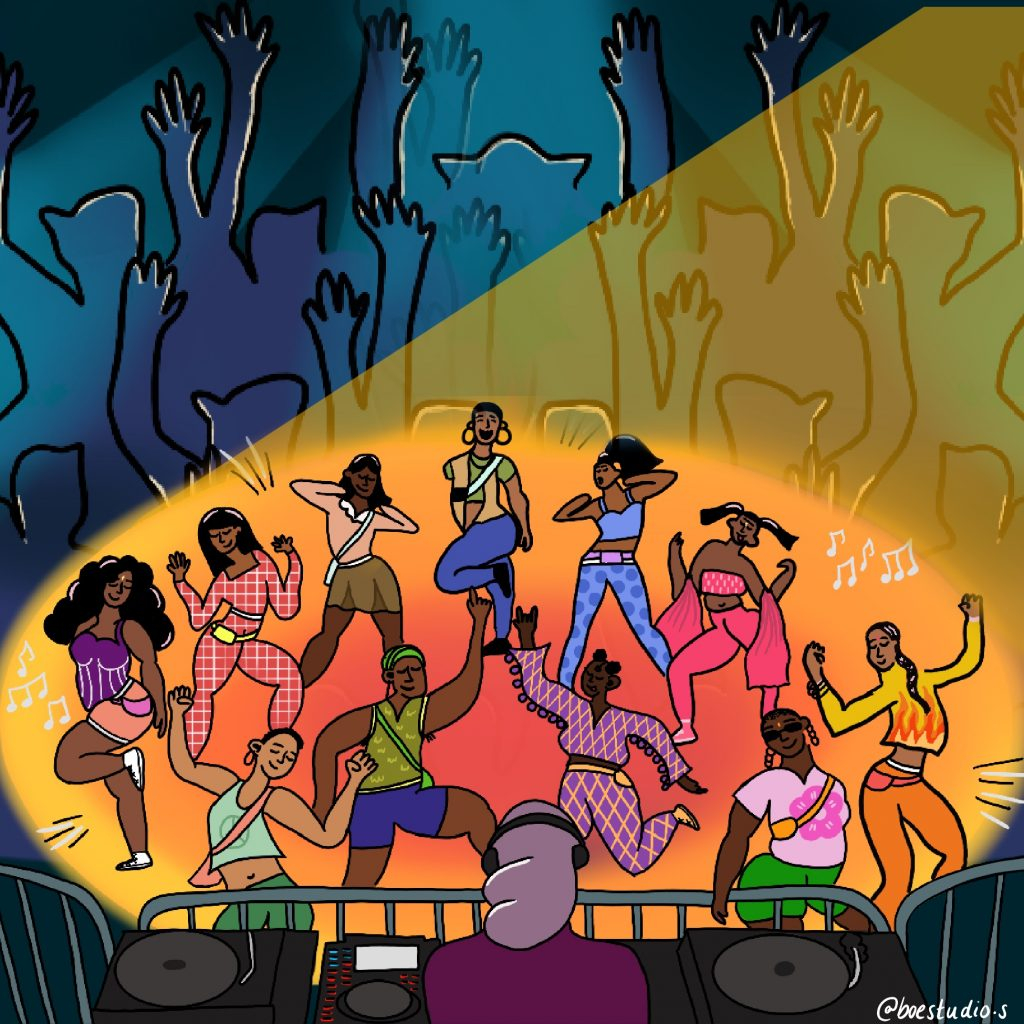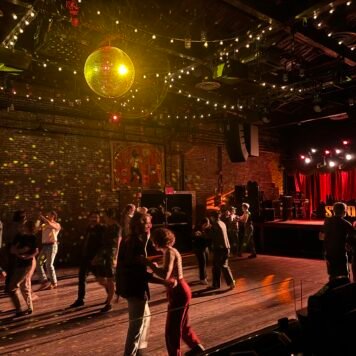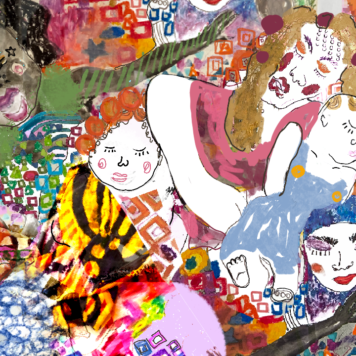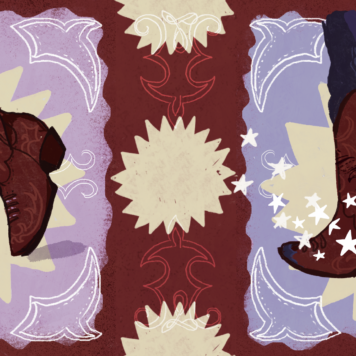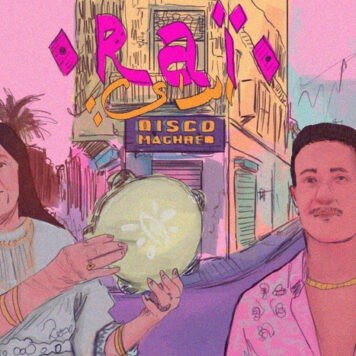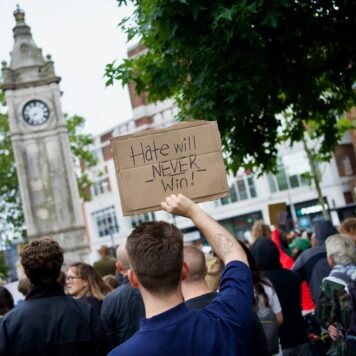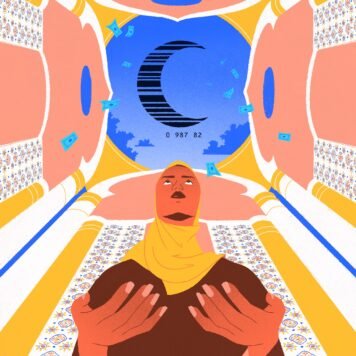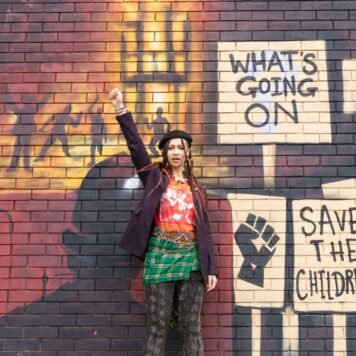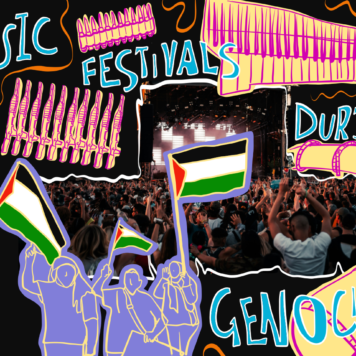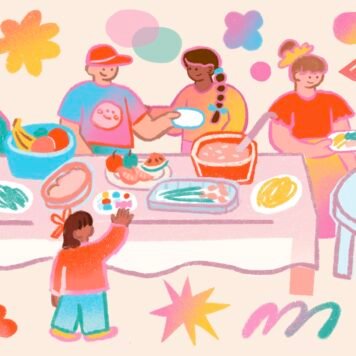Earlier this year, I attended the latest Dialled In – the London festival showcasing the South Asian underground. It was there on the packed dancefloor ahead of DJ Priya and Gracie T’s b2b set where a simple call out had me question club culture and the spaces associated with nightlife, music and events.
“Mandem settle, womxn to the front,” requested DJ Ahadadream as he welcomed Priya and Gracie to the decks. “If you’re a woman or non-binary we want you right up at the front of the dancefloor.”
The simple move immediately created a different energy on the dancefloor, where for those of us normally marginalised in such spaces, being surrounded solely by womxn – and mainly womxn of colour – created the feeling of a much safer event.
A packed dancefloor at any event should be a joyous space for release, however, it is sadly common for women and marginalised groups to experience feelings of unsafety, discrimination and sexual assault. According to research by Drink Aware, almost two thirds of women (63%) have experienced some sort of sexual harrassment in a pub, club or bar – and if you’re part of a marginalied community, the risk of discrimination or intimidation will be higher.
“Whether it’s live music or the DJ scene, they’re very similar in that if you’re femme identifying, especially a femme person of colour, you often don’t feel safe,” Gracie T told me when I asked about them about their decision to invite womxn to the front of their set.
“I’ve had plenty of experiences as a punter and DJ where I’ve felt my safety isn’t in my hands. It’s especially hard when I don’t believe that the people in charge are capable of protecting me from microaggressions or physical danger.”
Gracie has been making an active effort to create safer spaces at their sets for a long while – something that they hope to continue with their platform, The Beatriarchy.
Formed with Kitsta during the first lockdown, The Beatriarchy was formed in response to the online abuse and patronising behaviour they found they were getting elsewhere from the online music community.
“We started our Facebook group a year and a half ago and slowly, we saw lots of people joining because it wasn’t just us feeling this way. It was all the femmes, all the queers, all people of colour who felt out of place of the wider music scene.”
Also on a mission to callout unwanted behaviour at music events is the collective Girls Against, who formed back in 2015 after a member of the team experienced sexual assult at a gig.
Focusing initially on safety at indie gigs, the team realised how widespread the problem was across all scenes and felt urgency to tackle the issue.
So how exactly do you make dancefloors safer? Girls Against now have ambassadors across the UK who are trying to achieve this through training, support areas, putting in place policies and raising awareness.
Similarly to Gracie, Alice from Girls Against was very aware of the lack of training given to staff in these traditionally male dominated venues, meaning they can often be incapable of knowing how to handle issues regarding safety and sexual harrasment.
“Our policy may seem obvious but it is in fact to reinforce that sexual assult is a crime and should be taken seriously. We want all venues to have a sufficient policy in place,” explains Alice. “There is still a long way to go but I think with the opportunity to talk about these issues openly there is possibility for change.”
Often, it’s assumed that an easy fix to safer clubbing is to create your own space. It’s truly exciting seeing Dialled In showcasing South Asian talent, Eastern Margins championing East Asian artists, and Tough Act championing Trans artists in Manchester. However, even within these spaces it’s important to call your own community to account.
“The callout at Dialled In was particularly important for me because it was a very specific type of masc energy in the room before we stepped up to the stage,” said Gracie. “It was an energy where if I had been in the crowd as a punter, I wouldn’t have felt particularly safe or like I could have been my authentic safe and enjoyed that moment.”
“We must hold our own communities to account because if you’re a cis het man – even if you’re brown – you must actively say to your fans that we must also protect the trans people and queer people in our communities, and we make sure everyone is feeling as safe in a way we take for granted.”
“Unless you’re saying it explicitly then you’re just as compliant and responsible.”
As a woman who has both witnessed and experienced sexual harrasment at clubnights, gig and festivals, briefly experiencing a space at Dialled In was a moment of relief and empowerment. Being surrounded by womxn of colour on a dancefloor made me realise how more often than not, I am often surrounded by partygoers that can have me feeling either uneasy or straight up unsafe.
Platforms such as The Beatriarchy and Girls Against are raising awareness of the dark side of dancefloors for many womxn and marginalised groups by creating their own spaces, education and training. It’s a movement that is growing, welcome and one that I’ll be initiating at my own RepresentAsian club nights.
Subscribe to shado's weekly newsletter
Exclusive event news, job and creative opportunities, first access to tickets and – just in case you missed them – our picks of the week, from inside shado and out.

What can you do?
Check out the below to join the movement or support those who are leading the way:
- The Beatriarchy – The collective and safe space for like minded individuals
- Dream Wife – Read an interview with the indie band tackling misogyny in the music industry.
- Dialled In – The bi-yearly day and night party championing South Asian talent
- Eastern Margins – The platform showcasing East Asian artists.
- Girls Against – Standing up against sexual assault & misogyny in the UK live music scene.
- Good Night Out – An organisation campaigning for safer nightlife
- Hungama – Queer Bollywood clubnights in London
- Lick Events – The Queer clubnight with a strict ‘no cishet men’ policy
- Tough Act – The club night championing Trans artists in Manchester
- De Trut – Queer Amsterdam disco organized by volunteers with profits going to LGBTQI + projects.
